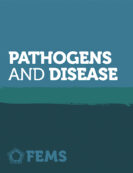Programme
Menu: Introduction – Applications – Programme
– Applications are now closed –
Content
The content of the FEMS Summer School for Postdocs 2025 will be focused on the following theme:
Harnessing microbial solutions in environmental research and One Health
Directors
Prof. Joana Falcão Salles, Professor in Microbial Community Ecology, Groningen Institute for Evolutionary Life Sciences (GELIFES), University of Groningen, THE NETHERLANDS
Prof. Dr. Tillmann Lueders, Chair of Ecological Microbiology, University of Bayreuth, GERMANY
Mentors and Speakers
Prof. Dr. Roey Angel, Anaerobic and molecular microbiology lab, Biology Centre CAS, University of South Bohemia, České Budějovice, CZECH REPUBLIC
Prof. Peter Baldrian, Principle Investigator, Institute of Microbiology, Laboratory of Environmental Microbiology, The Czech Academy of Sciences, CZECH REPUBLIC
Prof. Dr. Gabriele Berg, Institute of Environmental Biotechnology, Graz University of Technology (TU Graz), Graz, AUSTRIA
Prof. Dr. Martina Cappelletti, Molecular Environmental Microbiology Lab (MEMlab), Department of Pharmacy and Biotechnology, University of Bologna, ITALY
Dr Rodrigo Costa, Associate Professor and Research Scientist, Institute for Bioengineering and Biosciences (iBB) Department of Bioengineering (DBE), Instituto Superior Técnico, University of Lisbon, PORTUGAL
Prof. Dr. Max M. Häggblom, Department of Biochemistry and Microbiology School of Environmental and Biological Sciences, Rutgers, The State University of New Jersey, USA
Dr. Marcela Hernández, Group Leader and Royal Society Research Fellow, Centre for Microbial Interactions, University of East Anglia, Norwich, UK
Prof. Dr. Steffen Kolb, Microbial Biogeochemistry Group, Landscape Functioning Department, ZALF – Leibniz Center for Agricultural Landscape Research, Muencheberg, GERMANY
Prof. Raquel Peixoto, Associate Professor of Marine Science in the Biological and Environmental Science and Engineering Division, King Abdullah University of Science and Technology (KAUST), KINGDOM OF SAUDI ARABIA
Dr Ashley Shade, Director of Research, Institute of Ecology and the Environment, CNARS/Universite Lyon, FRANCE
Prof. Dr. András Táncsics, Department of Molecular Ecology, Institute of Aquaculture and Environmental Safety, Hungarian University of Agriculture and Life Sciences, Szent István Campus, Gödöllö, HUNGARY
Prof. Antonio Ventosa, Professor of Microbiology, FEMS President, Department of Microbiology and Parasitology, Faculty of Pharmacy at the University of Sevilla, SPAIN
Menu: Introduction – Applications – Programme
All but one of the FEMS journals are fully open access (OA), with one journal, FEMS Microbiology Letters, offering free-to-publish and OA options. Open access is key to supporting the FEMS mission of disseminating high quality research as widely as possible: when high quality, peer reviewed sound science is open access, anyone, anywhere in the world with an internet connection, can read it.







